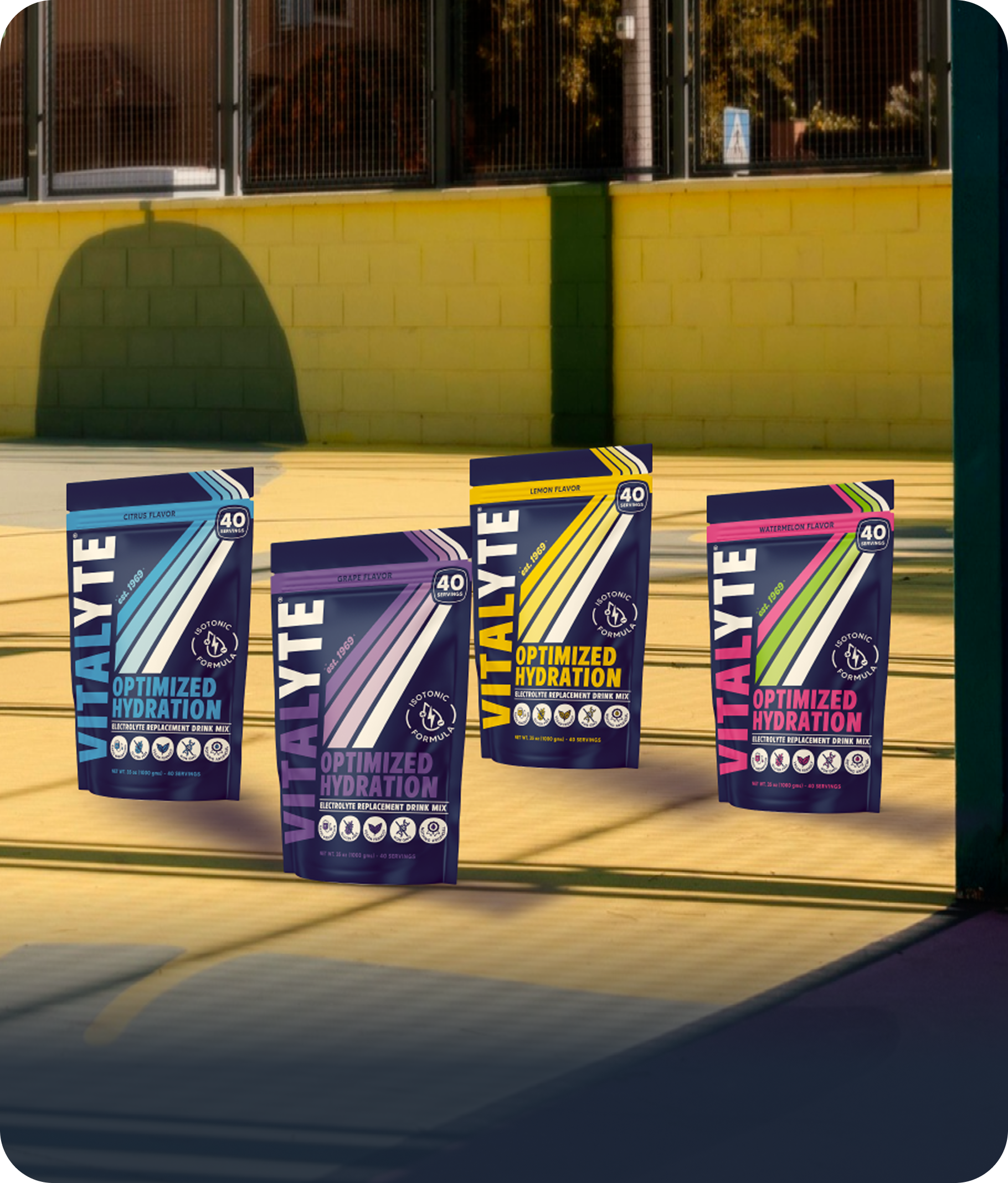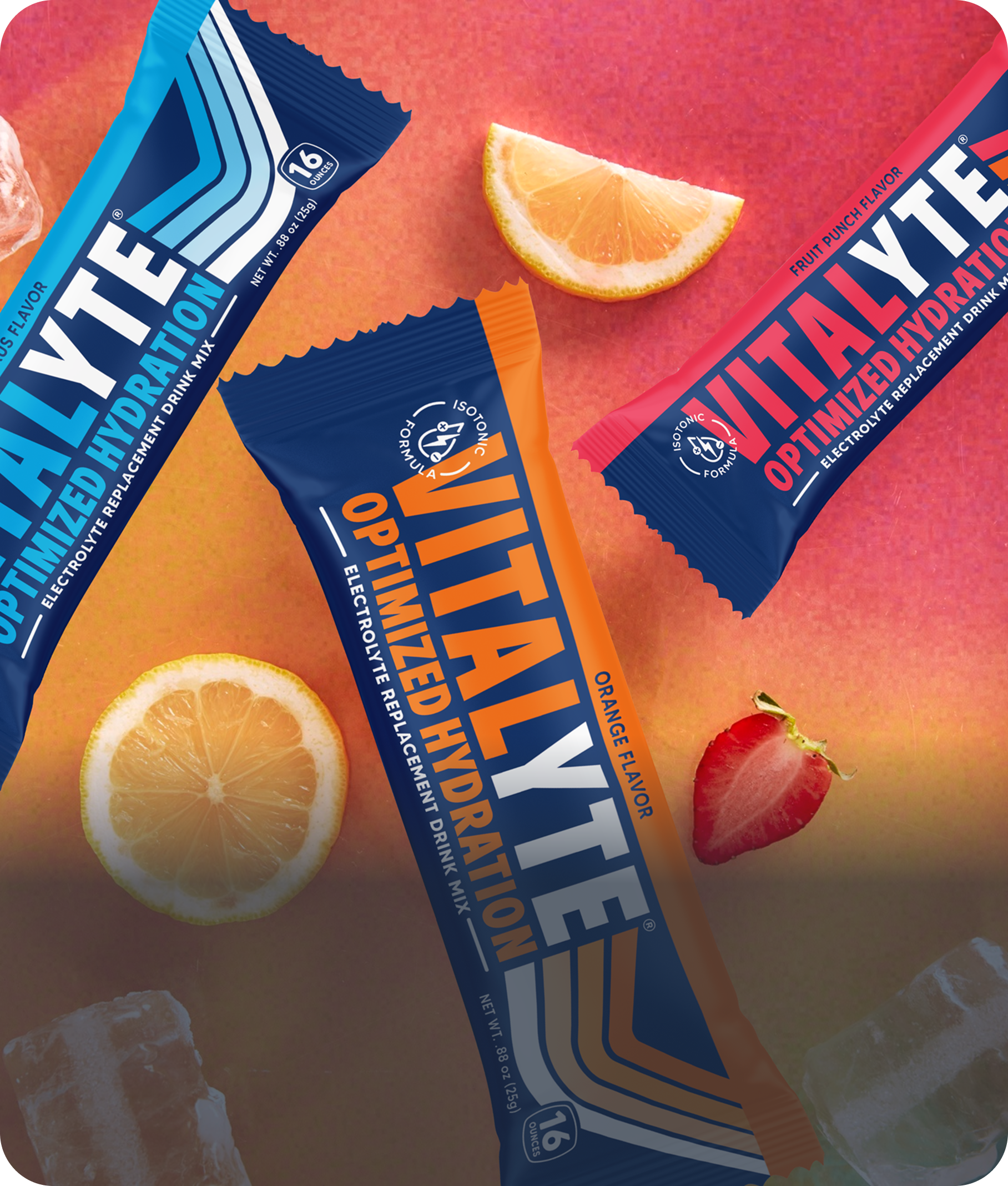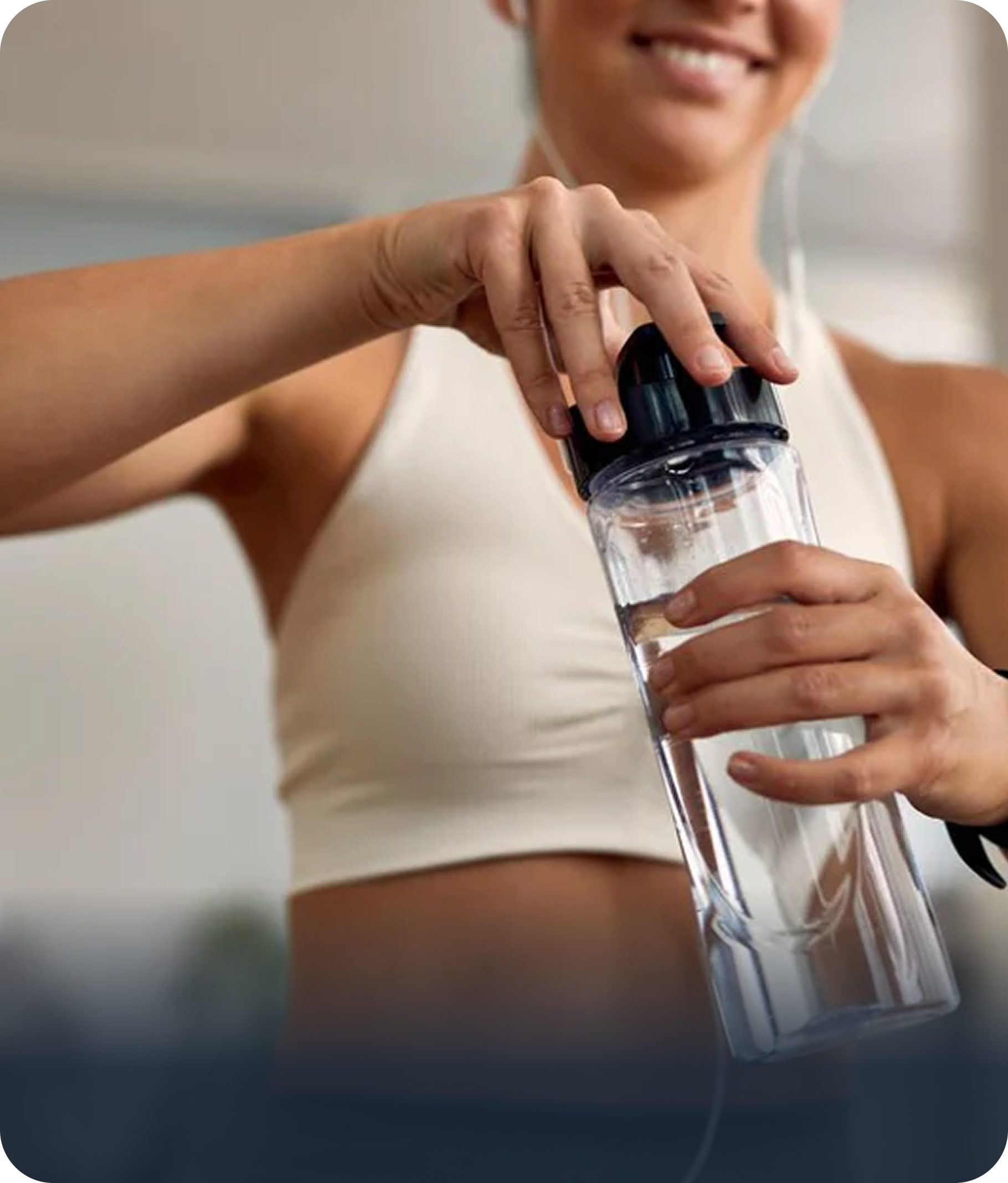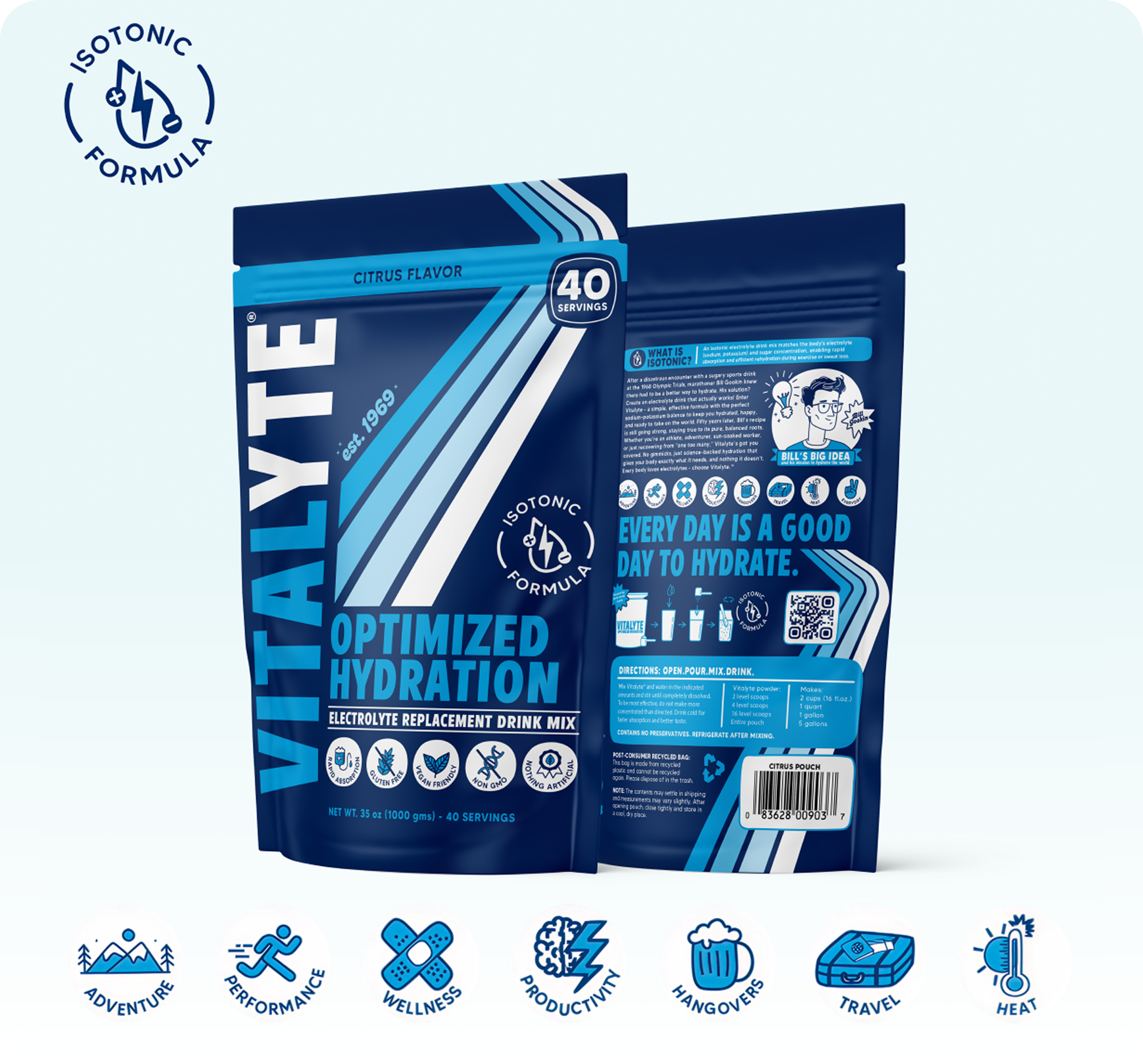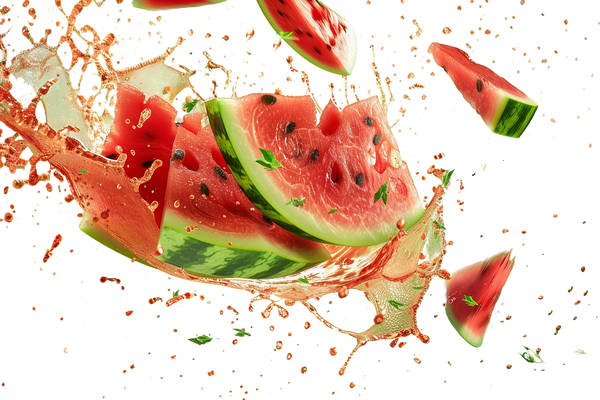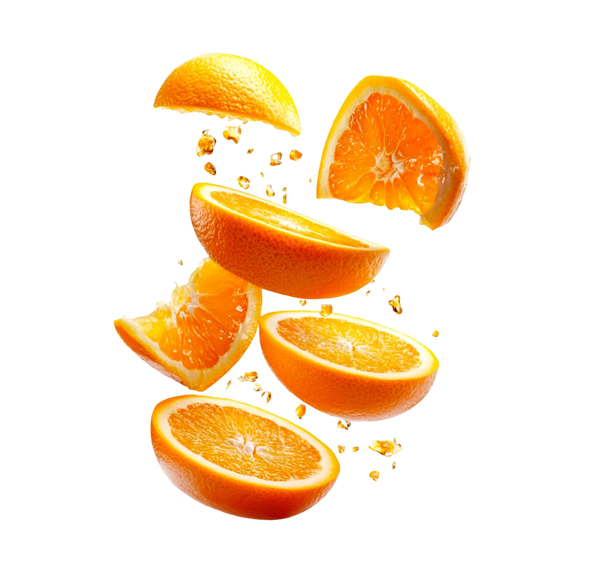Are Electrolyte Drinks Beneficial? Exploring Their Effectiveness
Share

Introduction
Electrolyte drinks are specialized beverages formulated to replenish essential minerals in the body, notably sodium, potassium, calcium, magnesium, and chloride. These key ingredients play a crucial role in maintaining hydration balance within the body's cells and are especially vital during physical exertion or when recovering from illness. The primary function of electrolyte drinks is to ensure that your body retains a healthy fluid level, which is essential for various physiological processes including muscle contraction and nerve function.
The benefits of electrolyte drinks are often discussed in the context of athletic performance and recovery from dehydration. Whether you're an athlete looking to enhance your endurance or someone seeking effective rehydration solutions during sickness, understanding how these drinks work can be incredibly beneficial. However, it's not just about the positives; there is also a need to consider the potential risks associated with their consumption.
This article delves into both sides of the coin – outlining the benefits of electrolyte drinks while also shedding light on possible health implications. By examining scientific evidence and expert opinions, we aim to provide you with comprehensive insights, enabling you to make informed decisions regarding the use of electrolyte beverages in your hydration regimen.
Understanding Electrolytes and Dehydration
Electrolytes are minerals with an electric charge, paramount in maintaining the body's fluid balance. They include sodium, potassium, calcium, magnesium, and chloride. These charged particles play critical roles in various bodily functions:
- Regulating nerve and muscle function
- Hydrating the body
- Balancing blood acidity and pressure
- Helping rebuild damaged tissue

When you lose fluids through sweating, urination, or illness, you also lose electrolytes, which can lead to dehydration. Dehydration is a deficit of total body water, with an accompanying disruption of metabolic processes. It occurs in three stages: mild, moderate, and severe.
The symptoms of dehydration vary depending on the stage:
- Mild dehydration: Thirst, dry mouth, decreased urine output
- Moderate dehydration: Very dry mouth, sunken eyes, lethargy
- Severe dehydration: Lack of sweating, rapid heartbeat, fainting
Timely rehydration with electrolytes can help prevent progression through these stages. If dehydration is left unchecked, it can lead to more serious health issues such as heatstroke or kidney failure.
Understanding the different causes of dehydration is crucial. It can occur due to:
- Excessive sweating during intense physical activity or hot weather
- Fever
- Diarrhea or vomiting causing rapid fluid loss
- Insufficient fluid intake
Replenishing your body's fluids with adequate electrolyte levels ensures proper hydration and bodily function.
The Science Behind Electrolyte Drinks: How Do They Work?
Electrolyte drinks are specifically designed to replenish the body's essential minerals and nutrients, playing a significant role in various physiological processes. These include muscle function, blood pressure regulation, and exercise performance.
Support Muscle Function
Electrolytes like sodium, potassium, and calcium are crucial for muscle contraction. They help transmit nerve impulses that trigger muscle cells to contract and relax. With electrolyte loss during sweating or illness, muscle weakness or cramping can occur. Electrolyte drinks replenish these minerals, aiding normal muscle function.
Regulate Blood Pressure
The body achieves blood pressure regulation through a delicate balance of sodium and potassium ions. Sodium increases fluid volume and blood pressure, while potassium helps relax blood vessel walls, lowering pressure. Consuming electrolyte drinks can help maintain this balance.
Enhance Physical Performance
Electrolytes also play a key role in maintaining the body's overall fluid balance, crucial for exercise performance. Dehydration hampers physical performance by reducing blood volume, making the heart work harder to pump oxygen and nutrients to active muscles. By promoting rehydration, electrolyte drinks aid in maintaining optimal cardiovascular function during exercise.
A study published in the Journal of Athletic Training corroborates this point. Athletes who consumed electrolyte drinks showed improved endurance compared to those drinking plain water.
It's clear that electrolyte drinks offer multiple physiological benefits. But it's equally important to consider their potential drawbacks, which we'll delve into next.
Examining the Potential Benefits of Electrolyte Drinks
Electrolyte drinks are essential for rehydration, especially when you're sick or experiencing fluid loss from issues like vomiting and diarrhea. These conditions can cause a drop in important electrolytes that water alone may not be able to replace.
Why Electrolyte Drinks Are Important for Rehydration During Illness
When you're sick, your body loses fluids and electrolytes faster than usual. This is where rehydration during illness becomes crucial. Electrolyte drinks provide a balanced combination of salts and sugars, which help:
- Replace lost fluids effectively
- Ensure optimal hydration by restoring essential electrolytes

How Electrolyte Drinks Help with Vomiting and Diarrhea
Vomiting and diarrhea are common symptoms of stomach bugs or food poisoning, and they can lead to significant fluid and electrolyte loss. Here's how electrolyte drinks can help in these situations:
- They replenish lost fluids: Electrolyte drinks are effective at restoring hydration because they contain specific amounts of sodium and glucose that promote faster absorption of fluids into the bloodstream.
- They restore electrolyte balance: These beverages also contain important minerals like potassium, calcium, magnesium, and chloride, which help maintain a healthy level of electrolytes in your body.
Other Potential Benefits of Electrolyte Drinks
In addition to rehydration during illness and managing vomiting/diarrhea, electrolyte drinks may offer some other advantages:
- Providing an energy boost: The sugars in these drinks can serve as a quick source of energy, aiding in your recovery from illness or physical exertion.
- Supporting overall hydration: While water should always be your primary choice for staying hydrated, electrolyte drinks can be useful in situations where you need to replace both fluids and electrolytes.
It's important to remember that while electrolyte drinks have their benefits, they should also be consumed in moderation and as part of a balanced diet. In the next section, we'll explore the potential risks associated with these beverages.
Weighing the Risks: Side Effects and Safety Concerns Associated with Electrolyte Drinks
When thinking about whether or not to drink electrolyte beverages, it's important to know the rules that govern how they're made. The Food and Drug Administration (FDA) has guidelines for commercial electrolyte drinks, focusing on what needs to be on the label and the quality of the product. This makes sure that people can make good choices based on the right information about what's in the drink.
FDA Regulation: The FDA sees electrolyte drinks as dietary supplements. That means the people who make them have to follow certain rules about what they put in them, what they say those things do for your health, and what they put on the label.
Even though electrolyte drinks have to follow FDA rules, there's still something to worry about: how much sugar they have in them. A lot of popular electrolyte drinks have a ton of sugar, which can be really bad for you.
Sugar Content: Having too much added sugar in these drinks can make it more likely that you'll get fat, have heart problems, or get type 2 diabetes. This is especially true if you drink electrolyte beverages a lot but don't do a ton of exercise that would make you need so much sugar.
It's important to remember that not all electrolyte drinks are the same. Some brands have options with less sugar or no sugar at all. But these might have fake sugars or other things added to them, which can also be bad for you.
The electrolyte drinks by https://vitalyte.com/ has a concentration of glucose that is the same as normal blood sugar and electrolyte levels. So whether you have high or low blood sugar, Vitalyte can help bring it to a healthy level.
Moving forward, we'll discuss another important topic - when to use sports drinks.
When to Use Sports Drinks
Sports drinks, laden with electrolytes, are specifically formulated for certain scenarios where the body's hydration and nutrient levels need a quick replenishment. Here's when reaching for a sports drink can be particularly beneficial:
During Prolonged Physical Activity
If you're exercising continuously for more than an hour, especially in a warm environment, electrolyte sports drinks can help maintain electrolyte balance and energy levels.
Intense Exercise Sessions
High-intensity workouts or competitive sports that result in heavy sweating may warrant the use of sports drinks to replace lost minerals and prevent dehydration.
Recovery Post-Exercise
Following strenuous exercise, sports drinks can aid in rehydration and muscle recovery by restoring glycogen and fluid levels.
When Water Isn't Enough
In situations such as illness that lead to significant fluid loss through vomiting or diarrhea, sports drinks offer a combination of hydration and electrolytes that plain water cannot provide.
Remember, while sports drinks serve a purpose within these specific contexts, they should not replace water as the main source of hydration in your daily routine. For those with lower activity levels or shorter workout durations, water remains the best choice for staying hydrated. Always align your choice of hydration with your physical activity levels and overall health goals.
Choosing Wisely: Selecting the Right Electrolyte Drinks for Your Needs
Selecting an electrolyte drink that meets your needs requires attention to both the source of the electrolytes and the additional ingredients included. Here are some considerations:
Natural Options
Homemade Recipes
You can make electrolyte drinks at home using simple ingredients like lemon juice, honey, sea salt, and water. This gives you complete control over the sugar content and avoids any artificial additives.
Brands with Minimal Additives
Look for brands that prioritize natural ingredients and have low levels of sugars and artificial flavors. Labels should list recognizable whole foods and natural sources of electrolytes such as coconut water, which is high in potassium.
Market Comparison
When evaluating sports drinks with electrolytes in the market:
- Analyze the nutritional label for calorie count, sugar levels, and presence of essential electrolytes such as sodium, potassium, magnesium, and calcium.
- Research what athletes and fitness enthusiasts say about the product's ability to hydrate and replenish nutrients effectively. Peer reviews can provide insight into real-world performance.
By considering these factors, you can choose a drink that not only replenishes your body but also aligns with your health goals and dietary preferences. Remember to check ingredient lists carefully — even products marketed as "natural" or "healthy" can contain unnecessary additives or high sugar content.
Special Considerations: Electrolyte Drinks for Children and Workout Recovery
Hydration Needs of Children
Children's bodies are not simply small versions of adults, and their hydration needs reflect that. They have a higher surface area to volume ratio, which can lead to a quicker loss of fluids and electrolytes. When considering electrolyte drinks for children:
- Consult a pediatrician before introducing any electrolyte solutions, especially for regular use.
- Check the label for appropriate dosing according to a child's age and size.
- Look for drinks with lower sugar content to avoid excessive caloric intake.
- Ensure the drink contains an appropriate amount of sodium, potassium, and magnesium, which are crucial for maintaining fluid balance in young, active bodies.
Electrolyte Drinks and Workout Recovery
For adults engaging in regular workouts or sports activities, replenishing lost minerals is key to recovery. Electrolyte drinks can be beneficial:
- By replacing lost sodium and potassium, they help to prevent muscle cramps and facilitate quick muscle recovery.
- A proper balance of electrolytes supports nerve function and muscle contractions, enhancing overall sports performance.
- Some studies suggest that including magnesium in post-workout drinks may reduce muscle soreness and improve muscle function.
Experts recommend drinking electrolyte solutions after prolonged physical activity or during intense training sessions. Listen to your body's signals—such as thirst and fatigue—to gauge individual hydration needs.
Moderation is Key: Avoiding Excessive Consumption and Potential Health Risks
While electrolyte drinks can be beneficial in certain circumstances, it's crucial to understand the potential risks of overconsumption. Hypertension, kidney damage, and heart disease are just a few health concerns linked to excessive intake of these beverages.
In essence, while electrolyte beverages can be beneficial for maintaining hydration and replacing lost minerals during physical exertion or illness, they should be consumed in moderation. It's always best to consider your individual health needs and circumstances before incorporating these drinks into your routine.
Conclusion
Electrolyte drinks are essential for maintaining hydration balance, aiding recovery, and improving performance. They replace the vital nutrients lost through sweating, exercise, or illness, making them popular among athletes and those involved in intense physical activity.
Here's a summary of what we've covered:
Benefits of Electrolyte Drinks
- Supporting Healthy Cell Function: Electrolytes like sodium, potassium, and magnesium are crucial for proper cell function, including nerve signaling and muscle contraction.
- Preventing Heat Stroke: By replenishing electrolytes lost in sweat, these drinks help regulate body temperature and reduce the risk of heat-related illnesses.
- Aiding Rehydration during Illnesses: When you're sick with conditions like diarrhea or vomiting, electrolyte beverages can help restore hydration levels and replace lost minerals.
- Regulating Blood Pressure: The right balance of electrolytes is important for maintaining healthy blood pressure levels.
- Enhancing Physical Performance: Electrolytes are involved in muscle function and hydration status, both of which can impact your athletic performance.
This dual nature of electrolyte beverages – being both beneficial and potentially harmful – underscores the importance of moderation. It's not about completely eliminating these drinks from your routine but about using them judiciously according to your individual health circumstances and needs.
While these insights provide a general understanding of electrolyte drinks, it's crucial to remember that everyone's hydration needs are unique. Hence, consulting healthcare professionals for personalized advice is invaluable. They can guide you in maintaining proper hydration balance and choosing suitable electrolyte sources based on your specific health conditions or fitness goals.
